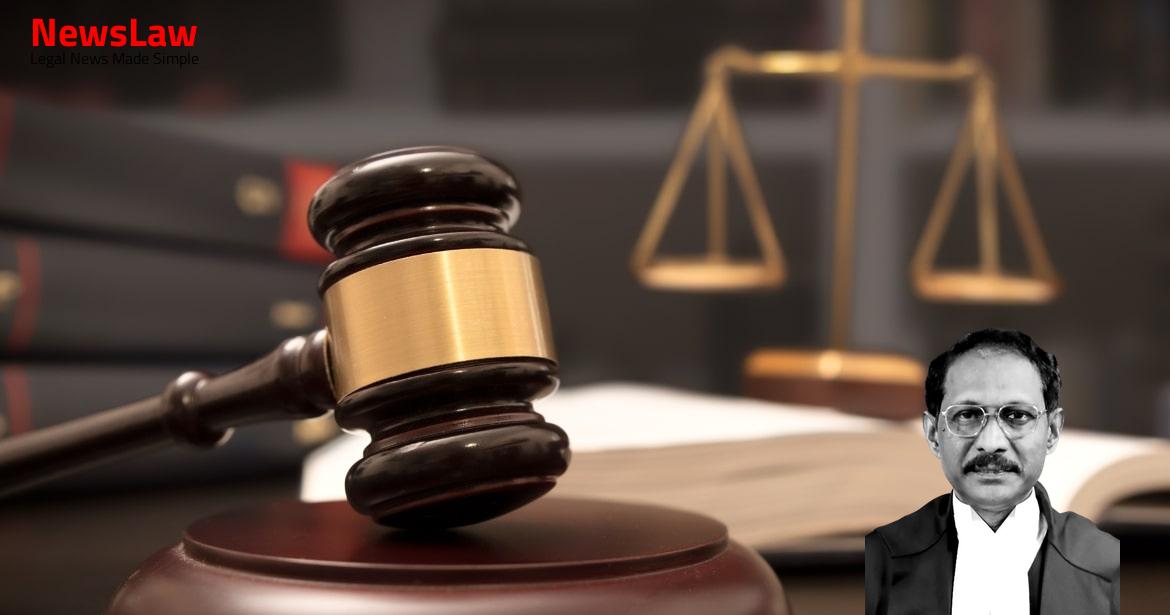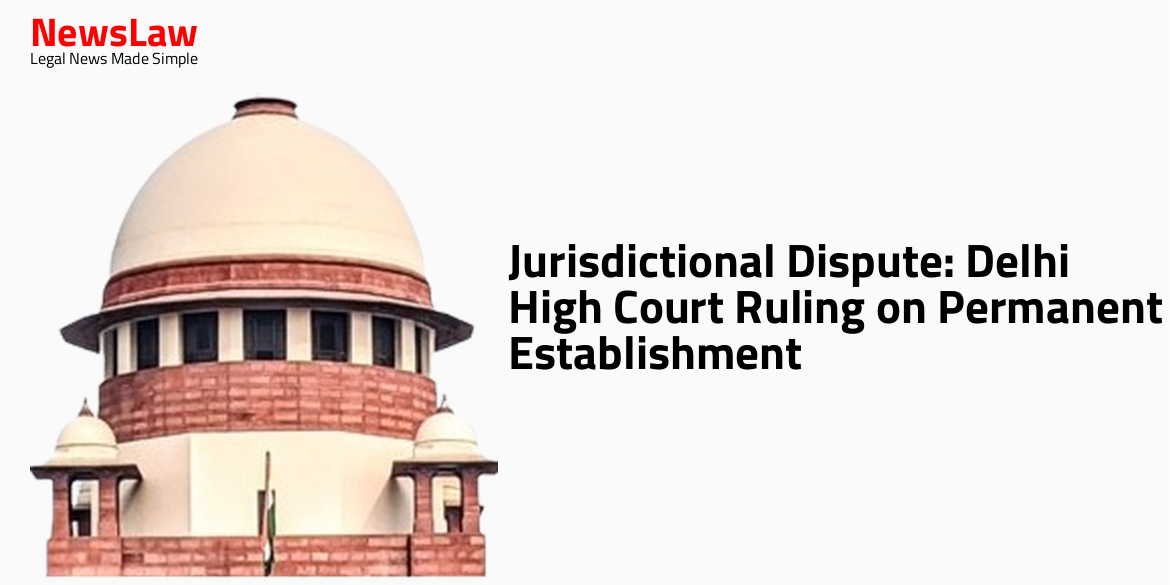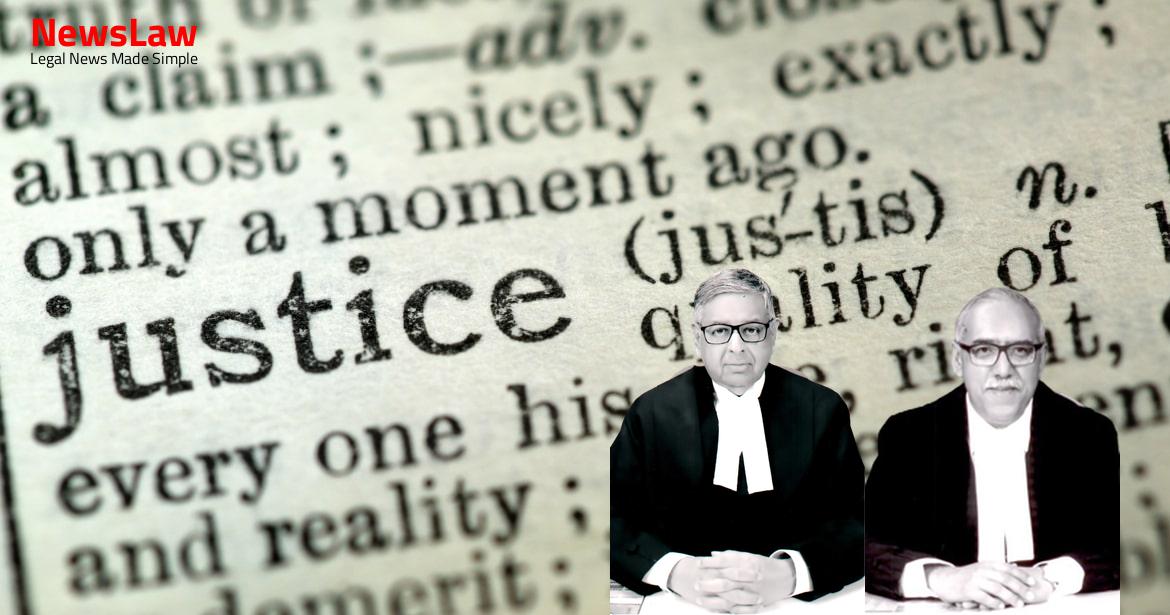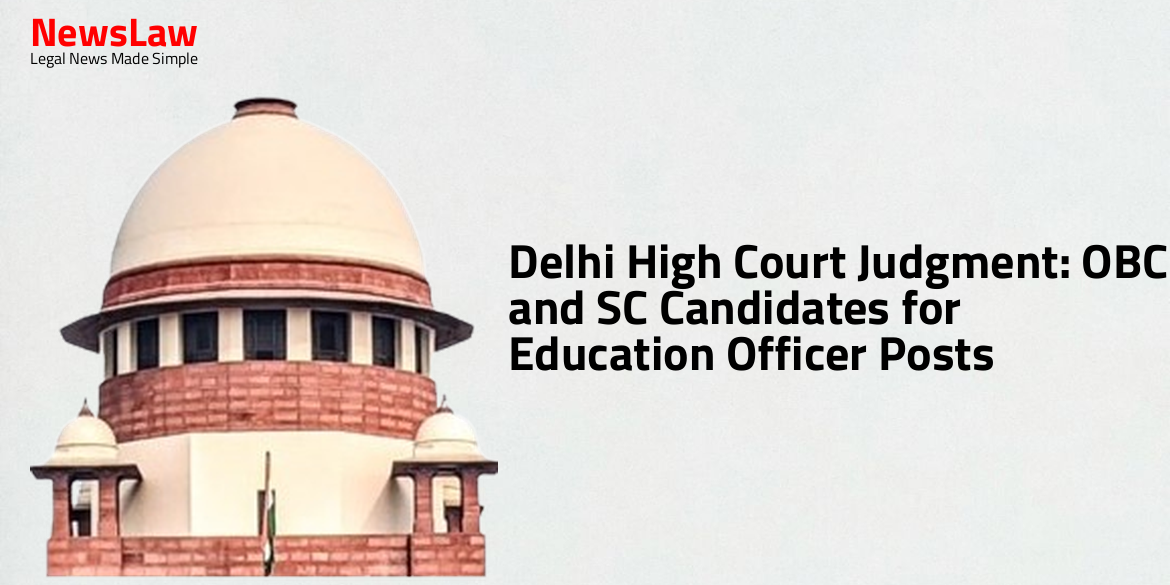In a recent court case, the analysis focused on the intricacies of ownership disputes and the mandatory registration requirement for property transactions. The court emphasized the need for presenting credible evidence and highlighted the significance of registered documents in determining property rights. This summary sheds light on the legal intricacies involved in the case, providing valuable insights into the court’s thorough analysis of the dispute.
Facts
- The respondent purchased the petition schedule property in 1985 from Phool Kumari when he was a minor
- The property was used as a small shop (Mulgi) and the rent was initially fixed at Rs. 300 per month
- The respondent filed a petition for eviction citing grounds of non-payment of rent, denial of landlord’s title, and requirement of property for own business use
- The Rent Controller allowed the eviction in R.C. No. 262 of 2008, leading to subsequent appeals by the appellants
- The original tenant Shri Balraj died in 1996, and the tenancy was continued by his wife and children
- Legal heirs of the original petitioner were brought on record during the pendency of the special leave petition
Also Read: Limitation and Pre-emption Rights in Sale of Urban Immovable Property
Arguments
- Oral testimony in this case is considered unreliable and untrustworthy according to Chagla J.
- The safest policy would be to let Mr. Ranganadham Chetty argue his point.
- Reference to the decision in Bibhabati Devi V. Kumar Ramendra Narayan Roy is made.
- Chetty argues that the court in appeals by special leave is not bound by strict practice.
- The option to depart from the usual practice is considered by the court in appropriate cases.
- The decision in Srinivas Ram Kumar V. Mahabir Prasad is referenced.
Also Read: 30-Year Sentence Upheld in Rape Case of 7 Year Old Minor at Temple
Analysis
- The courts found that the respondents failed to present admissible evidence to prove their claim of adverse possession.
- The appellants’ predecessors-in-interest purchased the property in 1985 as per a registered deed, contradicting the denial of title by the respondents.
- The respondents’ denial of title was deemed malafide based on the evidence presented.
- Ext. P3, a registered sale deed in favor of the respondent, established their ownership of the property.
- The appellants’ claims of purchase for a valid consideration were unsupported by any proper documentation.
- Concurrent findings concluded that the denial of the respondent’s title was without bonafides by the appellants.
- The legal requirement for a registered sale deed was highlighted in relation to property transaction validity.
- The absence of evidence to support the appellants’ claims further weakened their position in the case.
- The documents produced, including Ext. P3, indicated the true ownership of the property and refuted the appellants’ claims.
- The court found that the denial of title by the appellants lacked bonafides and was not supported by credible evidence.
- A finding can be said to be perverse if it is founded on no evidence to support the same or totally against the weight of evidence.
- A finding can be said to be perverse if material evidence was missed out for consideration or a totally irrelevant and immaterial aspect formed the foundation for such a finding.
- The real purpose of Section 17 of the Indian Registration Act, 1908 is to ensure that every person dealing with property requiring registration may rely with confidence upon statements contained in the register as a full and complete account of all transactions by which title may be affected.
- Non-testamentary instruments that create, assign, or extinguish rights in immovable property worth one hundred rupees or more must be registered
- The registration of such instruments is compulsory as per Clause (b) of sub-Section (1)
- This requirement applies to both present and future rights, whether vested or contingent
- Original petitioner did not file documents to show the respondent had other non-residential buildings.
- No evidence of malafide intent in requiring vacant possession of the property.
- Concurrent findings on all issues were found to be free of perversity or manifest injustice.
- Cross-examination failed to discredit respondent’s genuine requirement for personal occupation.
- No evidence to establish respondent already owns vacant premises for business purposes.
Also Read: Suppression of Material Facts and Fraud on the Court
Decision
- The appeal is dismissed, subject to certain conditions.
- Appellants are granted two months to vacate the property and hand over vacant possession to the respondent.
- No costs are awarded in this case.
- Pending applications have been disposed of.
- Appellants must file an undertaking within two weeks to comply with the conditions set by the court, including paying Rs. 3000/- as monthly rent during the extended period.
Case Title: GOPI @ GOVERDHANNATH (DEAD) BY LRS. Vs. BALLABH VYAS (2022 INSC 1000)
Case Number: C.A. No.-006827-006827 / 2022



